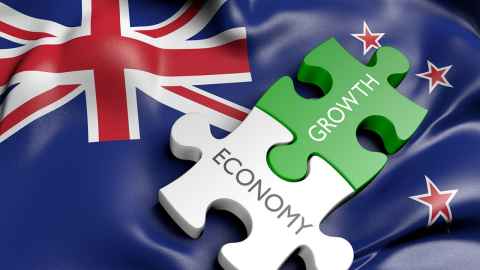Who will manage the economy better?
31 July 2020
Opinion: Felicity Barnes takes apart some historical but enduring myths about both National and Labour and which of the parties is best fit to run the economy.

The polls are in and the myths are out. In response to flagging poll numbers, National is positioning itself as a prudent manager against an imagined fiscally profligate Labour. That reputation, as Sam Sachdeva noted on Newsroom, "has always been the party’s trump card". But is it deserved?
The idea that National is the natural master of the economic universe, and that Labour is at best a hapless apprentice, is an enduring myth. But history suggests it is one we should be cautious about perpetuating. For even a cursory review of the past reveals a very different picture.
We might start with ’Think Big’, a signature economic policy from the Muldoon era of economic management, seeing Judith Collins and Gerry Brownlee have been busy summoning its ghost up from its white elephant-styled crypt.
Faced with challenging economic conditions, National’s response was to back a variety of eye-wateringly expensive energy infrastructure projects aimed at promoting ‘growth’ while insulating New Zealand from overseas economic shocks. Synthetic fuel, methanol and ammonia urea plants were established; another potline at Tiwai was among options considered.
We can argue over their individual worth, but the verdict on National’s economic stewardship is in: as economic historian Brian Easton writes, the "deepest flaw" was that each of these speculative projects came with a government guarantee.
Voters in the 1981 general election - which National won - may have liked the sound of Think Big but they had little inkling that, as taxpayers, they were shouldering the risk. Bad news came fast: energy prices fell, and the taxpayers faced a large bill. How large? Estimates range between $7 and $11 billion.
As expensive as that piece of National’s economic stewardship was, it pales in comparison to an earlier decision. In 1975, the incoming Muldoon government repealed the Kirk Labour government’s fledgling contributory superannuation scheme. Labour’s 1970s scheme looked pretty much like a compulsory version of KiwiSaver. But using a now infamous ‘Dancing Cossacks’ TV advertisement, a campaigning National Party decried it as socialist.
When National won the election, a contributory superannuation system was out: a pay-as-you-go taxpayer version, and a generous one at that, was in. The cost now? In the vicinity of the billions lost on Think Big, but on an annual basis. And that does not take into account the extraordinary benefit that would have accrued from New Zealand developing a large pool of superannuation savings. Easy to see why Brian Gaynor called it “the worst economic decision in 40 years”.
Like a rogue poll, Muldoon might be dismissed as a rogue politician, and these examples as partisan cherry-picking. However, the impact of these decisions lasted, and not just in reanimated ‘Think Big’ rhetoric. A Clark Labour government initiative, the National Superannuation Fund (NSF), which is like a giant, country-sized version of our own personal KiwiSavers, attempted to mitigate the ruinous expense of this pay-as-you-go system. Citing economic constraints, in 2009 the Key government suspended payment, and it is current National Party policy to do so again.
We can argue here about the prudence of borrowing, but drawing on the NSF’s own treasury-backed figures, suspension reduced the fund’s size by almost $40 billion. That means $40 billion less supporting the future cost of super. That’s 40 billion reasons to at least question National’s assumed mastery of economic management.
Of course, history also suggests that National, like Labour, has done plenty of things well. Though they have ideological differences, both parties have weathered recent economic storms capably. And that is the point. In an election year, New Zealanders will have to sift a number of expedient political promises from useful policy on all kinds of issues. History tells us that, at the very least, we can discount misleading myths on who is fit to run the economy.
Dr Felicity Barnes is a Senior Lecturer, History in the Faculty of Arts.
This article reflects the opinion of the author and not necessarily the views of the University of Auckland.
Used with permission from Newsroom Who will manage the economy better? 31 July 2020.
Media queries
Alison Sims | Research Communications Editor
DDI 09 923 4953
Mob 021 249 0089
Email alison.sims@auckland.ac.nz